The class provides the Basics of archaeological research in the Ancient near East (mainly for non archaeologists) and aims to provide the students with the basic knowledge on archaeological methods and aims, of valorization of archaeological heritage with special reference to the relationship to local communities and conflict areas.
Class BEGINS ON FEBRUARY 22nd 2021, Mo-Wed 14-15.20, ONLY ONLINE VIA WEBEX LINK ON MOODLE
- Docente: PUCCI MARINA
- Docente: FUSCO NADIA ANGELA
Introduction to GIS applied to the analysis of environment and space.
- Docente: TARTAGLIA MARIO
- Docente: AZZARI MARGHERITA
- Docente: TARTAGLIA MARIO
Content
The course critically addresses the
main issues of landscape urbanism and in particular:
- differences between historical
cities and suburbs;
- main patterns and forms of suburbs
in Europe, the US and in developing countries;
- basic methodologies to study the
social life of suburbs;
- representations of suburbs and
construction of suburban policies;
- definition and measurement of the main morphologic, functional and
infrastructural features of the suburbs;
- evaluation of planning policies
for the suburbs.
The course also introduces research
in the field of suburban studies and provides some basics of the case study
research technique.
Readings
For the landscape urbanism section:
weekly readings that will be provided on moodle.
For the methodology section:
- Robert K. Yin, Case Study Research: Design and Methods, Sage, 2009.
Goals
Knowledge: The course aims to
provide advanced knowledge of the suburban world, as well as methodological
research skills on the case study research technique.
Skills: description and analysis of the suburbs through proper methodologies; ability
to critically analyze suburban policies; ability to develop a case study
research on suburbs.
Teaching methods
The course is not taught ex cathedra
but through the active participation of students. Some of the activities
carried out will be: projection, analysis and discussion of journalistic and
filmic texts; collective discussion of weekly readings; collective discussion
of the individual exercise. Individual exercise: case study research on a
suburban settlement.
Attendance and non attendant
students
Attendance is mandatory.
Alternatively, it is possible to take the exam as a non-attendant in
bibliographical mode.
Evaluation Criteria and Exam
For attendant students: weekly evaluation of learning through classroom discussion
of the readings. Final talk on the weekly readings. Evaluation of the
individual exercise (case study) and discussion of it.
For non attendant students: in depth oral/written exam on the exam bibliography.
- Docente: GIOVANNONI GIULIO
- urban-rural relationship;
- representations of the urban and construction of urban policies;
- history, identity and urban space;
- social diversity and urban conflict.
For the methodology section:
- Chris Hart, Doing a Literature Review. Releasing the Social Science Research Imagination, Sage, 1998.
Skills: ability to critically analyze urban policies; understanding the interdependencies between discursive practices, urban policies, and spatial social dynamics; ability to develop a literature review.
- Docente: GIOVANNONI GIULIO
- Docente: CORTESI IRENE
- Docente: MASIERO ANDREA
- Docente: MUGNAI FRANCESCO
Tutto il Materiale e le altre Attività dell'insegnamento sono reperibili all'insegnamento;
B024701 (B060) - ABILITA' INFORMATICHE IN ARCHEOLOGIA 2020-2021
- Docente: DE SILVA MICHELE
- Docente: POTESTA' GIOVANNA
- Docente: LODA MIRELLA
- Docente: PALAT NARAYANAN NIPESH
- Docente: PUTTILLI MATTEO GIROLAMO
- Docente: WEIDNER SILKE
